Info
10+ Proven Health Benefits of Tulsi Tea
Tulsi tea is one of the most popular beverages used in Asian countries, which gives physical and mental health benefits. Herbal teas have adaptogens that are beneficial in relaxing the body muscles and brain nerves so it gives better relief from stress, promotes mental clarity, and boosts immunity.
As Tulsi has many therapeutic values and properties, the health benefits of Tulsi tea are high for healing the mind and boosting overall energy to the body. The Tulsi tea is prepared from tulsi leaves which can be combined with various herbs and spices to add aroma and flavor.
The tulsi tea uses either dried or fresh tulsi (holy basil) leaves or dried tulsi leaves to powder and it can be consumed any time of the day with or without sweet agents. Like green tea leaves, Tulsi leaves are also filled with a set of powerful antioxidants that prevent a range of health risks. Not only the tea but chewing a few fresh holy basil leaves daily can be beneficial for your dental and digestion health.
What is a Tulsi Tea?
Tulsi is scientifically called Ocimum sanctum which is a herbal plant and a member of the mint family. It is a close relative to Ocimum basilicum which is also called Great basil or culinary basil. Both have different medicinal properties and physical features.
The holy basil leaves have a strong aroma and astringent flavor. The presence of natural antioxidants in the leaves protects the body tissue from free radical damages and supports tissue regeneration.
Tulsi in India is called Holy basil in most parts of the world. After knowing the benefits of this herb, it has got a few names such as “Elixir of Life” and “Queen of herbs”.
In India, Tulsi (Holy basil) is seen as one of the most sacred and auspicious plants. Many parts of the Indian subcontinent have worshiped the Tulsi plants in households and religious places.
Tulsi has many health benefits so this herbal plant is widely used in home remedies and culinary purposes. In Ayurveda medicine, the tulsi leaves have been used for thousands of years to treat digestive, respiratory, inflammatory, and skin disorders.
Though holy basil is not often used for culinary purposes, it is a powerful herb that can be beneficial for an overall healthy lifestyle. So, you can add the leaves to food or drink to enjoy its goodness. One such way of incorporating tulsi into food is Tulsi tea. It might be an ideal choice for alleviating stress and tiredness in the body and mind.
Nutritional Facts of Tulsi Tea
Tulsi tea has antioxidant, anti-inflammatory, anti-microbial, anti-stress, antidepressant, antibacterial, antiviral, anticholesterol, antiemetic, antitoxic, anti-cancer, antimycotic, anti-ulcerogenic, anti-lithiasis, expectorant, adaptogen, stimulant, and dysuria relieving properties which make it a powerful herbal tea for natural healing and mood-lifting.
Tulis leaves are filled with vitamins like vitamin A, C, and K. It is also packed with minerals like calcium, iron, magnesium, phosphorus, potassium, and zinc. The important health-boosting nutrients present in leaves are protein and fiber.
The holy basil leaves are high in hundreds of complex biochemical compounds including apigenin, carvacrol, eugenol, luteolin, ursolic acid, and flavonoids that act as powerful antioxidants. Aside from these, the plant leaves are also packed with beneficial terpenes including limatrol, linalool, propanoic acid, rosmarinic acid, saponins, and tannins.
Tulsi brew using its leaves or leaves powder seeps all of these phytochemicals into the tea making it a great natural beverage for healing.
Drinking Tulsi herbal tea offers various health benefits including balance to the immune system, natural skin glow, treating kidney stones, and removing excess fat from the body.
A quarter cup of fresh tulsi leaves contains below nutrients.
- Calories – 1.38
- Carbs – 0.15 gm
- Fat – 0.03 gm
- Fiber – 0.09 gm
- Protein – 0.18 gm
- Sugar – 0.01 gm
10+ Health Benefits of Tulsi Tea
Holy basil tea is prepared from leaves, stems, and seeds, all of these have therapeutic uses, also the plant parts can be used to tincture and make oil. It is a commonly used herb in Ayurveda and Chinese medicine for respiratory, skin, intestine, and nerve conditions.
Let’s look into the potential health benefits of tulsi tea.
1. Respiratory Disorders
Tulsi tea from fresh or dried leaves has a respiratory system benefiting properties like antitussive (relieves cough), expectorant (remove phlegm), immunomodulatory (boost immunity). So, it can cure respiratory problems from asthma, pneumonia, bronchitis, cough, and cold. The essential oils in the leaves help give better relief from congestion also.
The phytochemicals compounds including camphene, camphor, cineole, and eugenol in tulsi tea act as an expectorant and expel phlegm and mucus and open airways, and improve breathing.
Drinking tulsi tea regularly helps in enhancing respiratory system functions and protects you from the common cold which otherwise can lead to severe respiratory disorders.
2. Stress Management
According to several studies, herbal teas have anti-stress and antidepressant properties that help you come out of distress. Some research shows that Tulsi tea aids in keeping cortisol hormones levels in check. Cortisol is a stress hormone. By regulating this, tulsi tea lets you stress-free. It is also believed that tulsi tea can treat depression and anxiety.
The flavonoids in the tulsi tea act as antidepressants and support the production of neurotransmitters that in return lower anxiety and bring calmness.
The typical OTC drugs for anxiety and stress can cause possible side effects and lead to health risks. So, it is better to try the natural methods as they can improve the quality of time.
A lot of ancient medicine systems suggest Tulsi for enhancing the mood as it delivers a feeling of calmness to the mind. Though more research is required to approve the effect, so far the records and studies support the use of Tulsi tea to boost spirit and relieve stress.
3. Cognitive Functions
An animal study found the tulsi leaves promote attention and memory in rats. The herb decreased acetylcholinesterase levels and increased acetylcholine levels in the subjects.
In a cell study, tulsi hindered Matrix metallopeptidase 9 (MM9), and results suggest that tulsi may help to get back the quality of BBB (Blood Brain Barrier).
Another animal study found that an extract prepared using dried tulsi leaves may protect against memory problems associated with aging and drugs. It shows that tulsi leaf extract can be used for cognitive disorders like dementia and Alzheimer’s disease.
A review of some animal studies found that tulsi can affect the Central Nervous System (CNS) and may prevent convulsions.
Though the results are promising, most of the studies have been done on animal models. Future human studies will show the possible effects of tulsi on the human nervous system.
4. Skin and Hair
Tulsi is packed with powerful antioxidants, plant compounds, biochemicals, and valuable nutrients. So, consuming tulsi tea daily can help healthy hair and skin.
The antioxidants prevent free radical damages and oxidative stress in the body which is responsible for aging and its symptoms like wrinkles, fine lines.
By preventing the free radicals from damaging the cells and tissues, tulsi tea helps with antiaging. The presence of polyphenols in tulsi leaf tea slows down aging and gives you a young look and healthy hair.
The antioxidants in tulsi help to increase and form collagen which is important for skin and hair.
A study in 2013 proved that tulsi detoxifies the body. The study shows the specific herb helps to remove fluoride and other similar toxins from water. The ingestion and topical application of tulsi leaves on skin showed the same benefits. It shows why we can add Tulsi tea to diet plans and cleaning drinks.
Tulsi leaf extract, when applied to the skin, is deeply absorbed by the skin so it goes through all the skin layers to purify and cleanse. It happens on the outer layers and epidermis which is an inner skin layer.
The adaptogens in Tulsi leaves add antimicrobial and anti-inflammatory properties to the tea. These adaptogens are the main compounds in most herbal teas that control the responses of the body to different stressors. Thus, tulsi tea not only reduces inflammation in the skin but also navigates the reactions to stress occurrences. These two properties also protect the skin from harmful UVA and UVB rays and treat damages.
Tulsi leaves have antibacterial agents. Because of this, ingestion or topical application of tulsi leaves has been used as a herbal remedy to treat acne and other skin infections due to bacteria. The leaves kill harmful bacteria while cleaning the skin (topical) and blood (ingestion).
You can make a natural mask at home using tulsi leaves, rose water, and sandalwood powder. Mix holy basil leaves paste with the other two ingredients and apply it to the skin or face. Leave for 20 minutes and wash off with cold water. It kills bacteria and removes impurities. You can use it for dark spots, blackheads, and acne scars also.
Drinking tulsi tea or using tulsi extract or tulsi-infused shampoo and hair washes helps to remove dandruff, strengthen hair follicles, reduce split ends, and prevent hair fall. Thus you will get strong, thick, long, and lustrous hair.
5. Health Health
Tulsi has antiviral and anti-cholesterol properties. So, it helps to reduce LDL from the body and supports good heart health.
The high amount of ursolic acid and phytochemicals in tulsi tea possess cardioprotective effects. The phytochemicals in the herbal tea combat free radicals in the blood, warm off coagulation of cholesterol in the blood walls, and regulate blood flow to organs. In a way, the blood pressure is kept in check.
Also, the minerals like calcium and potassium in tulsi leaf tea protect the heart from myocardial infarction, oxidative stress, and heart attack.
It also prevents possible health ailments by boosting the immunity power.
6. Blood Sugar Levels
Tulsi tea may help to reduce blood sugar levels compared to regular milk tea. Drinking tulsi daily can help to facilitate the metabolism of fat and carbs. It also manages the sugar release to the blood and makes sure sugar in the blood is utilized for energy.
As tulsi tea is packed with hypoglycemic properties, it is beneficial to control blood sugar levels. Tulsi tea might help in activating the production of insulin from the β-pancreatic cells. It also helps to break down starch into glucose slowly which results in low glucose levels in the blood.
As it is caffeine-free and has properties to maintain blood sugar levels, it may be a great natural beverage for diabetic patients to have at any time.
7. Weight Loss
Tulsi tea like other herbal teas can help with digestion. It improves the secretion of gastric juices which leads to smooth functions in the digestive system.
Also, the anti-ulcerogenic properties prevent the secretion of pepsin and lipid peroxidation and increase the production of gastric mucin and mucous cells which protect the gastrointestinal tract from pathogen and acid attacks.
Drinking tulsi tea regularly can help to absorb proteins and carbohydrates thus the fat breaks down slowly so you will not feel hunger for a long time. It stops you from eating often.
8. Kidney Stones
Tulsi helps to improve kidney functions. The herb aids in the excretion of uric acid and maintains its levels in the kidney. Thus it averts gout.
The anti-lithiasis property in tulsi tea prevents kidney stone formations, helps to reduce the size of formed stones. Thus, tulsi helps to treat related health conditions like kidney stones, polycystic kidney disease, and cystitis.
9. Infections
Tulsi tea contains medical properties like antibacterial, antimicrobial, antifungal, antiviral, and antimycotic. Also, it is packed with flavonoids, phenolic acids, and flavonoids. Having all of these effects, tulsi tea combats and prevents bacterial, viral, and fungal infections when applied or ingested.
The anti-inflammatory activity of the herb helps to lower the risks of inflammation caused by harmful pathogens. The herbal tea alleviates infections and inflammation while stimulating the health of the nervous, respiratory, and excretory systems.
10. Arthritis Pain
Based on some research journals, tulsi tea has Eugenol, a biochemical compound present in the oil of tulsi leaves, which has an anti-inflammatory effect on the digestive tract and joints. So, it is beneficial to cure arthritis pain.
11. Dental and Oral Health
Tulsi leaves have antimicrobial properties that help fight off harmful bacteria and germs in the mouth. It helps to prevent plaque formation. You can chew a few tulsi leaves to refresh the mouth and remove bad breath.
12. Insect Repellent
Tulsi extract is an excellent skin tonic. Applying tulsi juice or tulsi leaf oil to the body will work as a great insect repellent. The effect of the herb lasts for more than two hours. Tulsi acts as an astringent and benefits skin.
How to brew Tulsi Tea
If you prefer to use tulsi leaves or leaf powder, follow the steps.
- Take a few fresh or dried tulsi (Holy basil) leaves or take one teaspoon of leaf powder.
- Boil them in a cup of water.
- Steep for 5 minutes that the flavor of leaves induces in water.
- Strain the water in a cup.
- Add lemon or honey for extra flavor.
If you prefer tea bags, follow the below steps.
- Boil a cup of water.
- Add a tea bag.
- Steep them for 3 minutes.
- Remove the teabag.
- Add lemon or honey for extra flavor.
Note: You can add other herbs and spices like ginger, cinnamon, and cardamom to the tea while boiling for added taste and benefits.
Other herbs to brew with Tulsi Tea
When searching tulsi tea varieties, you can see the tulsi tea sometimes mixed with other herbs. This increases the taste and overall health benefits. Like in cooking where we add several ingredients for taste, flavor, aroma, and nutrition, the different tea blends also aim the same.
Some of the popular blends of Tulsi tea and herbs are here.
Tulsi Turmeric Tea
If you are drinking tulsi tea for brain health, start drinking tulsi turmeric tea.
Turmeric has anti-inflammatory properties that reduce inflammation in the body and brain. It further averts chronic diseases and disorders. Tulsi and Turmeric are the best for cognitive functions and supporting neurotransmitters in the brain.
The sweet flavor of tulsi and the spicy flavor of turmeric balances the taste. It can be consumed any time of the day with or without sweeteners.
Tulsi Moringa Tea
If you are drinking tulsi tea for skin and hair health, try tulsi moringa tea.
Moringa has vitamins A, B6, B2, and C, and minerals like magnesium and iron. The antioxidants in moringa and tulsi help in preventing free radical damages and severe health conditions.
The earthy and a little bitter flavor of moringa goes well with the sweet notes of tulsi. It can be consumed for weight control also.
Both the tulsi teas are best consumed plain but you can add milk, sugar, lemon, or honey for sweetness.
Potential Risks of Holy Basil Tea
Holy basil tea is relatively safe for everyone, however, it can cause a few potential risks in some people. To prevent these, you should ask your doctor about their suggestion about adding herbal tea to your daily diet.
Pregnant and Breastfeeding Women
If you are a pregnant or breastfeeding woman, you should not consume herbal teas without proper medical supervision as the effects and safety of tulsi tea are not yet assured for you.
Fertility
If you are trying to conceive, it is best to avoid basil tea. This is because the effects of the tea are not sure if it can affect sperm count and mobility.
Medical Interactions
If you are taking blood-thinning medicines, don’t take basil tea as it may cause bleeding or bruising.
Surgery Interactions
Herbal teas and supplements slow down the ability to clot, so it is best to stop drinking them at least three to five months before surgery.
Aside from these, if you experience any allergic reactions or see any difference in your body’s conditions after consuming the tea like digestion problems, it is best to stop drinking until your healthcare provider approves it.

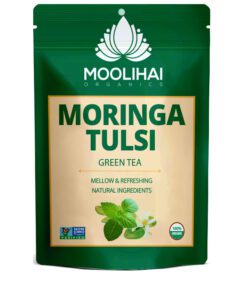
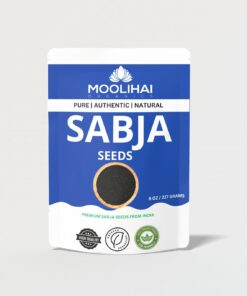
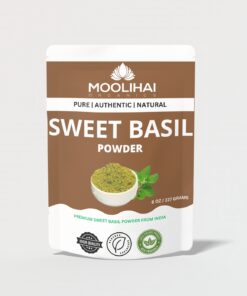
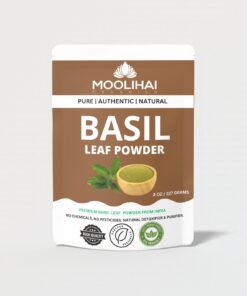
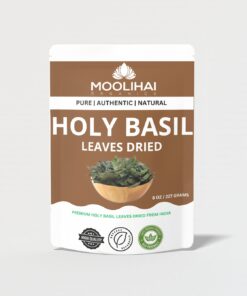
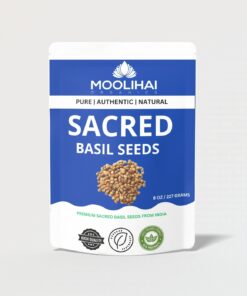
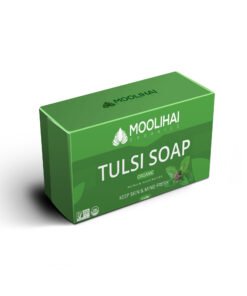
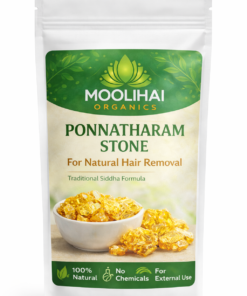
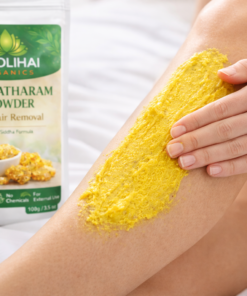
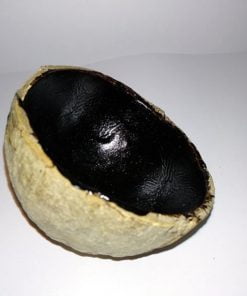

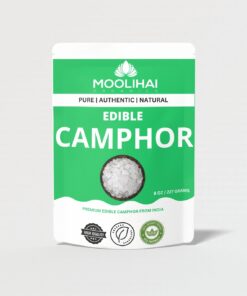
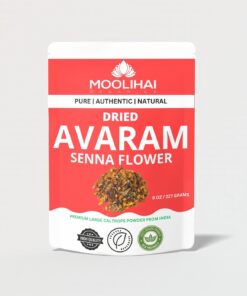

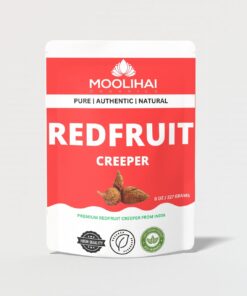
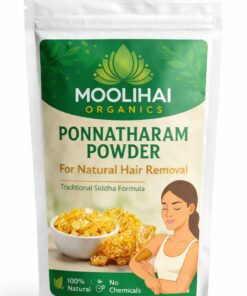

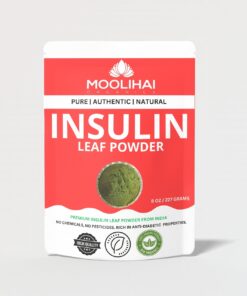
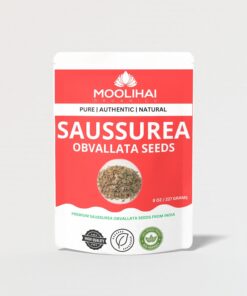
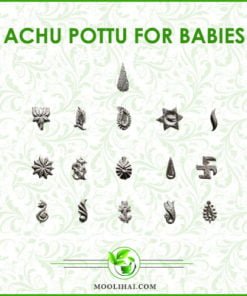
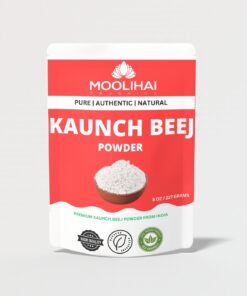
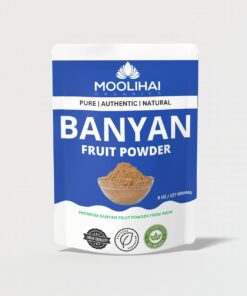
How many daily cups of tea would be beneficial to see results from any of the various teas? Thanks!